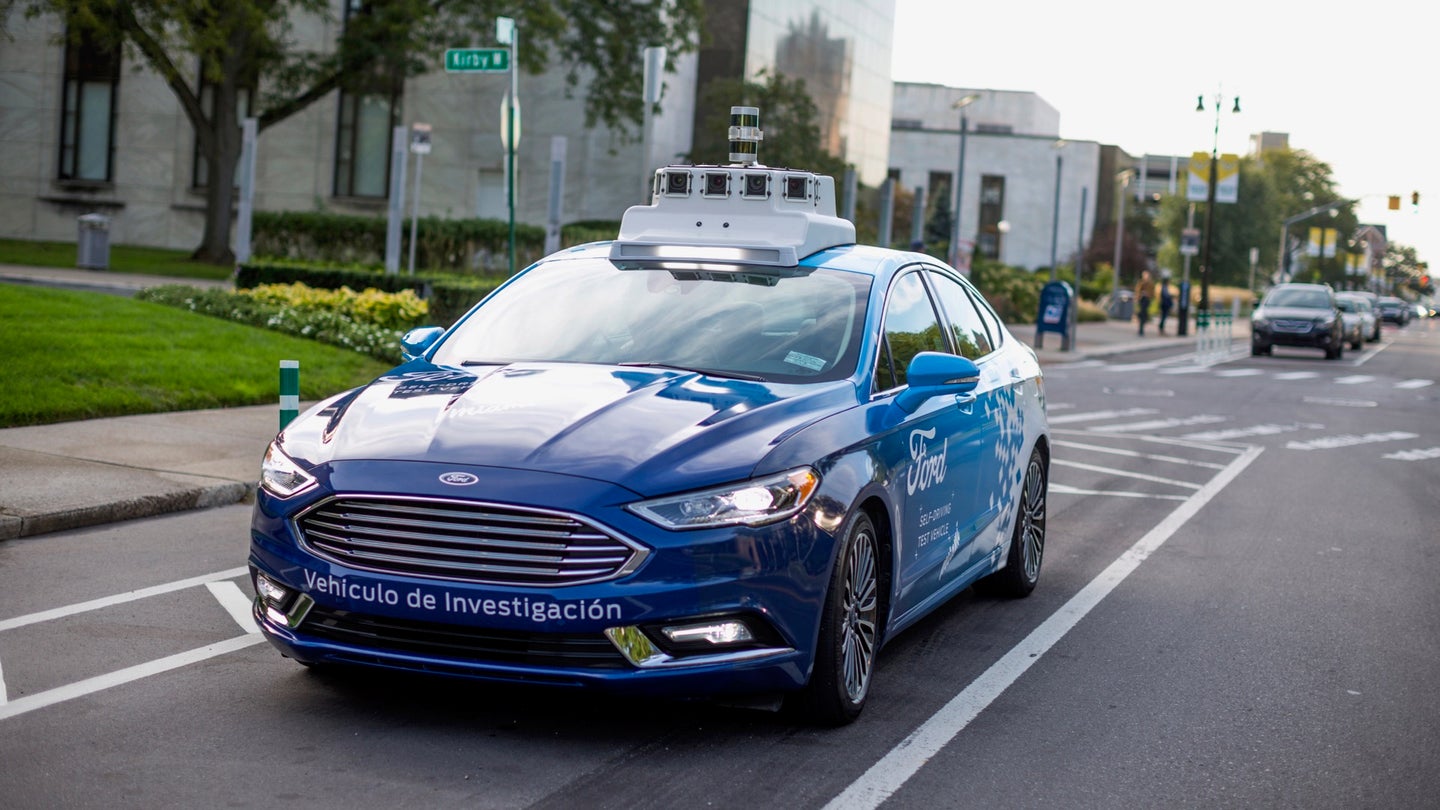Ford, Michigan State University Expand Autonomous Driving Research Program
The two have been collaborating since 2014, taking on more than 50 projects in various automotive fields.

Ford and Michigan State University (MSU) are expanding a research partnership into new areas. Going forward, the automaker and the university will work together on sensors, lightweight materials, and autonomous driving technology, according to a Ford press release.
"No company—no matter how large or vertically integrated—has the internal resources to lead in all important technical areas," Ed Krause, Ford global manager of external alliances said in a statement. "Partnering with leading research universities like Michigan State is an important part of Ford's strategy to access world-class external talent."
Ford and MSU began collaborating on research in 2014. Since then, the partnership has encompassed more than 50 projects in areas including powertrains, materials, and electrification, according to Ford.
Like many automakers, Ford is looking to expand beyond selling cars and is working to develop new technologies like autonomous driving and electric powertrains to meet anticipated future demand. Ford is constructing a new Detroit campus anchored by the iconic Michigan Central train station as the hub for many of these efforts.
One of Ford's short-term goals is to launch a production self-driving car in 2021. Ford previously said the car will have no manual controls and will use a hybrid powertrain. Ford anticipates that autonomous cars will initially be used by corporate fleets for ride-hailing and delivery services, rather than being sold to individual owners. The automaker is running fleets of cars in Florida and Washington D.C. not only to test the technology but also more basic elements like fleet maintenance and dispatch protocols.
